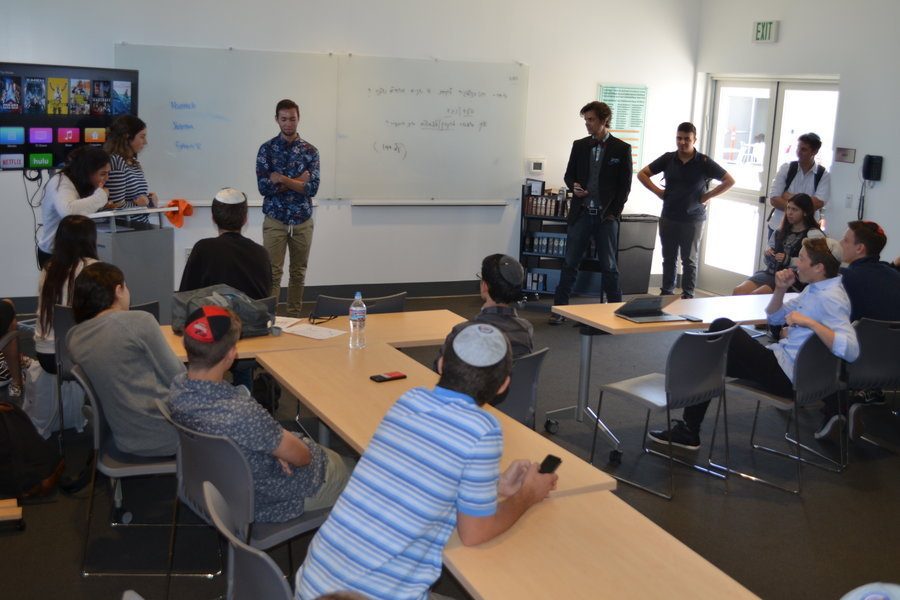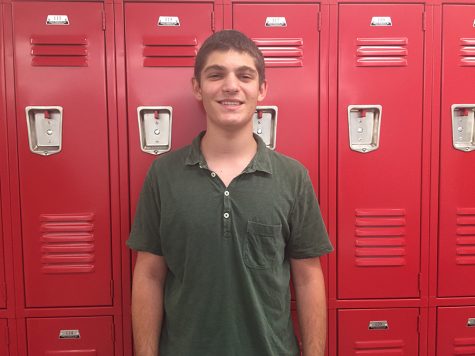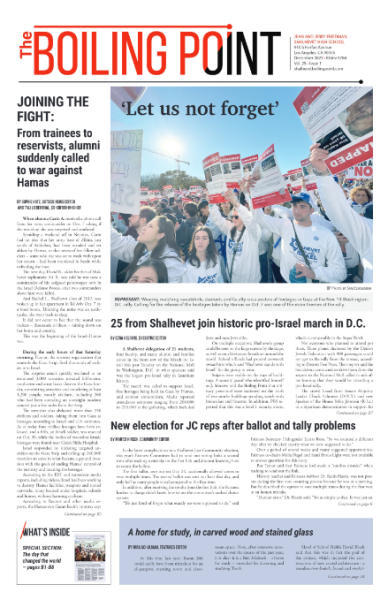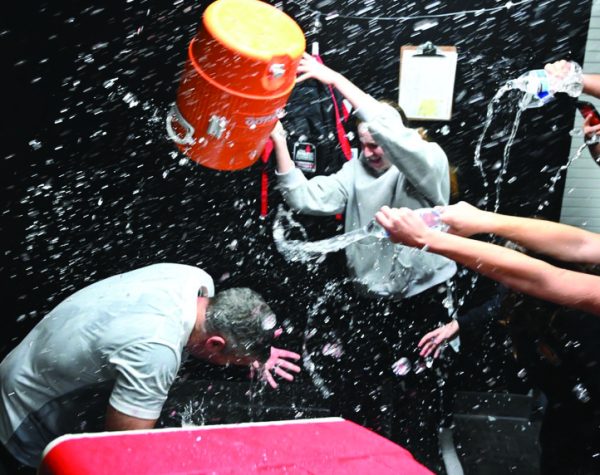Fairness Committee picks winners of Fairness senior rep elections
WORDS: Eytan Rosenman, one of the three candidates for senior Fairness representative who was allowed to speak, talked about his plans for the committee after a heads-down, hands-raised vote narrowed the field from five to three candidates.
September 28, 2016
There were no ballots, not every candidate was allowed to speak, and the Fairness Committee – not the students in the grade — picked the winners when the senior class met to elect Fairness committee representatives during Town Hall period Sept. 17.
All grades voted that day for grade-level representatives to the Agenda, Fairness and Student Activities committees, and the other grades’ elections were held as in the past, with candidates giving speeches followed by everyone voting.
But for the seniors, who met in Room 304, the election was unusual from the start.
First, they were told that not everyone would get to speak, and that they would not be choosing the winners. There were five candidates: Talya Ohana, Ezra Hess, Hannah Diamond, Eytan Rosenman and Sabrina Wannon.
Then, instead of ballots, the seniors were asked to put their heads down and raise their hands for the two students they wanted as their representatives. Fairness co-hairs Alex Reich and Becca Sentchuk and Fairness faculty adviser Dr. Keith Harris kept their heads up and counted the votes.
After that, the three candidates who had received the most raised hands — Hannah, Eytan and Sabrina — were allowed to speak.
And then, the seniors were told to leave the room while Alex, Becca, and Dr. Harris made the final choice. They chose Hannah and Sabrina.
“It was 100 percent unfair,” said defeated candidate Talya Ohana, who was eliminated before she could speak. “Voting on the basis of a name is unfair. Nobody really knows how I feel about the Fairness Committee.”
Senior Noah Suissa said he didn’t like it because it was inconsistent with how the rest of the Just Community operates.
“I think that we have to follow the same voting procedures for all the committees of the Just Community,” said Noah. “I don’t think it was fair. I think it was unreasonable.”
Becca and Alex wrote an email to the Boiling Point defending their actions.
“The Fairness committee must be made up of individuals who will do everything in their power to better the committee,” the email stated. “We are not looking for the kids who are most popular or the ones who can debate, rather the ones who genuinely care about fairness and what it represents.”
The Just Community Constitution, enacted by consensus by the community in 1993, says this about grade-level Fairness Committee representatives in Article 2, section 2:
Each grade will elect representatives from its own grade, and teachers will elect fellow teachers. The two nominees from each grade and the two teacher nominees with the most votes will serve on the committee.
Becca and Alex interpreted it this way:
“It is stated in the constitution that representatives shall be elected through nomination and ultimately selected based upon their ability to benefit the committee,” they wrote in their email.
Senior Micha Thau thought he understood their position.
“It’s a little frustrating, but I understand where the Just Community is coming from,” said Micha. “They’re trying to make sure that people with high positions can pick people who they think they can work with.”
“The danger is that… it might just be based off who Alex and Becca want to work with,” said Micha. “The danger is that it might turn into who the Fairness Chairs like the most.”
The controversial process reopened the issue of the Just Community constitution, which had been partially lost last year and was found in May. During the election, Alex told the seniors that everything was proceeding “by the letter of the law,” referring to the constitution.
But Agenda Vice-Chair Isaac Goor said use of Article 2 Section 2 had been inconsistent.
“I disagreed with it,” Isaac said of last week’s process. “I think if you’re going to follow the constitution, you should follow it all the way – a.k.a. give up the chairmanship and let the representatives vote on who should be the chair.
“I think it was un-Just-Community-constitutional,” Isaac added. “If you want to go all the way in and follow the constitution word for word, then do it. Don’t half-ass it.”
Since the finding of the constitution, there has been discussion of whether abolish it, amend it, or shape the Just Community to reflect it.
Alex, Becca and Isaac have expressed opinions that the Just Community adapt to fit more into what the constitution says.
Head of School Rabbi Ari Segal said that he believes that, instead of adapting the Just Community, we should adapt the constitution.
“I think the constitution should be revisited and amended,” said Rabbi Segal at a news conference of Boiling Point editors Sept. 4. “I don’t think it should be redone. You don’t redo constitutions; you amend them to reflect modern realities.
“The school is founded on certain principles which I don’t think are changeable,” he said.
Agenda Chair Bennett Schneier also thinks it should be updated.
“It’s important to note that the constitution was written with a different administration, a different faculty, the school had a very different makeup,” said Bennett. “The culture of the school is very different. It was made for a different Shalhevet..”
Dr. Harris was asked by the Boiling Point if the Fairness Committee would follow the constitution this year. He said it would be considered.
“Yes we’re going to look at it, but then there’s the question of whether or not it should be amended,” said Dr. Harris. “We’re potentially proposing that as a Town Hall meeting, and we’re going to look at the constitution… Constitutions can be amended.”
Becca said that the Fairness Committee has already submitted a proposal to the Agenda Committee to discuss the constitution at Town Hall.
For now, Becca and Dr. Harris both said they were happy with the way the elections turned out this year.
However, Becca said that next year’s elections will proceed the way that representative elections have proceeded in all other grades, with a small change that an interview will be necessary to become a candidate.
Talya Ohana would like future elections for Fairness to be more – fair.
“From what I know, Shalhevet is founded on democracy,” Talya said. “I was prepared to give a speech and I was passionate about it… and I was upset that I wasn’t able to do it.”















Sam Hirschhorn • Sep 30, 2016 at 2:51 pm
Read this article to see the freezing points take on this issue: http://shalhevetfreezingpoint.blogspot.com/2016/09/breaking-news-supreme-court-cancels.html?m=1